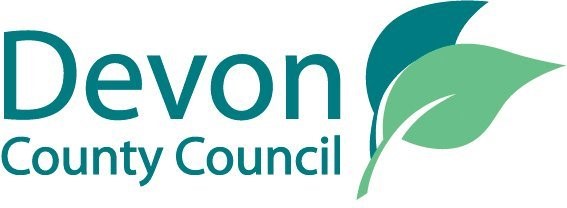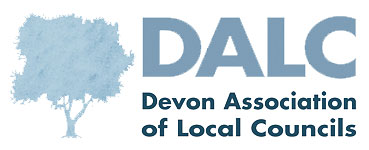DALC Chair urges councils to Meet the Leader

DALC Chair urges member councils to take up an exciting opportunity to Meet the Leader of Devon County Council. This is a great chance to have your thoughts heard and help shape the future together!
Join us for this exclusive opportunity to meet the Leader of Devon County Council, Cllr James McInnes, where parish and town councils can hear directly about the county’s current priorities, key challenges, and plans for the upcoming year, including discussions on the budget and future strategies.
DALC Chair, Liz Brookes-Hocking, encourages councils to attend:
“Now’s your chance! The Meet the Leader (in person) workshops offer you the opportunity for a better relationship with the principal authority. Talking and listening constructively are a key part of team building. Parish and town councils, working on the ground, are a key part of the team – and one which the county is keen to work with – believe it or not! Come and see for yourself. Be part of the conversation. Find out what the County’s thinking is; tell the county leader about your council’s priorities. We can achieve better results for our communities through collaborative working, exchanging views and ideas. Let’s do it!”
This session will provide valuable insights into the Council’s vision and allow for an open, interactive discussion on parish priorities, helping to inform Devon County Council’s thinking moving forward.
This is a chance for your parish to have its voice heard and to engage in meaningful dialogue on issues that matter most to your community.
Make sure to reserve your place today!
These FREE events are open to parish and town councillors, and booking is required in advance. We recommend no more than 2 representatives per parish/town council, to enable as many councils as possible to attend
There are 7 events available, all taking place in-person between 6pm and 8pm:
South Hams | Thurs 14 November | The Watermark, Ivybridge
Teignbridge | Tues 26 November | The Courtenay Centre, Newton Abbot
West Devon | Weds 4 December | Pavilion in the Park, Okehampton
Mid Devon | Tues 10 December | New Hall, Tiverton
North Devon | Thurs 12 December | Roundswell Community Center, Barnstaple
Torridge | Tues 17 December | Great Torrington Town Hall
East Devon | Weds 18 December | The Beehive, Honiton
These events have been organised by DALC, on behalf of Devon County Council, exclusively for parish and town councils.
DALC encourages all councils to participate in their local event, to ensure parish priorities are heard by county leaders.
Civility and Respect Project – Social Media Guide
Social media is a simple, quick and effective way of communicating but unfortunately, in a small number of cases, councillors and councils can experience online abuse. This guide will help with the challenges of social media for local councils, from handling trolling to legitimate challenge and scrutiny, from smear campaigns to politics. The guide will help you use positive language to tone to shape engagement and the conversation, to find common ground and engage with various views.
There is also help on escalating issues, deleting and moderating comments, blocking abusive users, reporting online abuse and legal matters to the police or social media platforms and deciding when it is time to get off social media.
Annual Parish Meeting

The Annual Parish Meeting is a meeting of the electors, so is a great opportunity for community engagement!
What is the annual parish meeting?
Annual parish meetings (sometimes called annual town meetings or annual assemblies) are not a meeting of the council but instead are a meeting of the electors. The meeting for each parish must assemble once a year between 1 March and 1 June (inclusive). Although there are a number of ways the meeting can be called, it is NALC’s view that the parish or town council has a duty to assemble the annual parish meeting during that time period.
The meeting is intended to be a useful forum for the community to discuss parish affairs. There are no guidelines on what may count as a parish affair, but it could be anything that affects the parish which is reasonable for discussion. You can contact us for more guidance if needed.
What do we need to know?
The meeting may be convened by:
- the chair of the parish council
- any two parish councillors for the parish
- where there is no parish council, the chair of the parish meeting or any person representing the parish on the district council
- any six local government electors in the parish
Public notice of the meeting must be given 7 clear days* beforehand specifying the time and place of the meeting, with an agenda of what will be discussed and signed by the person(s) convening the meeting. The notice can be posted in a conspicuous place or places, such as your noticeboard, and anywhere else which might help publicise the meeting.
The meeting cannot commence earlier than 6pm, and may not be held in premises which are used for the supply of alcohol unless no other room is available free or at a reasonable cost.
The meeting must be open to the public and the press. If the chair of the parish council is present at the meeting then they must preside over the meeting.
*If the meeting is being convened to discuss the establishment or dissolution of a parish council or the grouping of the parish with another parish under a common parish council, then public notice must be given at least 14 clear days before the meeting.
Community engagement
This is an excellent opportunity to engage with the community, by providing a space where members of the public can share their views or where local organisations (including the council!) can promote their work. Your council may already have a structure for the meeting in place but it’s always worth thinking about new ideas. Some of our top suggestions for increasing attendance and engagement are below.
| Offer refreshments – a free cream tea or promise of sandwiches can encourage people to attend | Use it as opportunity to present an annual report from the council | Give out community awards (like South Brent’s Community Champions) |
| Feature presentations from different local organisations such as the school, police, climate groups etc | Give out grants at the meeting so organisations receiving a grant will attend | Operate the meeting as a fair with stands from different organisations |
More information
NALC’s advice notes: Annual Parish meeting
Free Training for Speech, Language and Communication Needs
Millions of people across the UK experience speech, language and communication needs. A partnership of organisations and charities have worked together to develop the Communication Access Symbol, a new disability access symbol. This symbol is underpinned by a completely free training package and standards.
Free training is available and accessible to businesses, organisations and individuals. Once the training is completed, individuals will receive certificates. Organisations will receive accreditation as Communication Accessible once they have committed to deliver the training and adhere to the standards. Organisations will then be placed on a national directory, and can display the Communication Access Symbol.
The Communication Access Symbol and training will support inclusive communication for all. Please get involved with the project and share with your communities. Let’s make Devon Communication Accessible!
You can find more information on the Communication Access website.
Community Led Planning

Community led planning is a consultation exercise and opportunity for a community to consider their concerns and interests.
The Community Led Planning process is a grass-roots initiative comprised of a community consultation exercise. It can bring the community together by realising joint aspirations for the area and working together to achieve that through the planning system. It is a unique opportunity for a community to looks at its own concerns and interests through a structured consultation process that is driven and carried out by the community itself.
The process might help form a parish plan, a neighbourhood plan or a community/village design statement which can lay out the issues raised and the desired outcomes that have been revealed by the consultation process. This can then feature in your responses to planning applications as your plan will identify what the community feels is best for them, and what is a priority in development.
Community led plans can also help you identify the resources and skills available in the community; there’s a wide range of untapped potential in all communities. Sometimes people who do not otherwise engage with the local council might want to get involved with the process to help the community take control of the area.
If you would like more information about embarking on a community led plan, you could try contacting Devon Communities Together or ACRE.
Communications Toolkit (2010)
You don’t have permission to view the content
